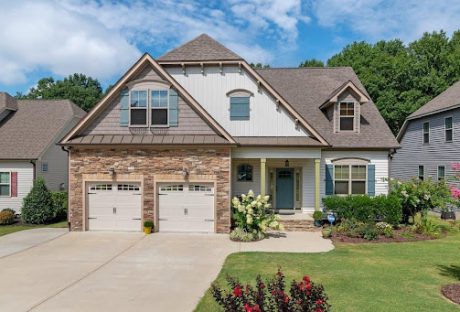The COVID-19 pandemic has disrupted the construction industry heavily. With people focusing on social distancing measures and businesses going online to cater to their customers, the commercial sector took a hit.
The pandemic fuelled a boom in e-commerce has increased the demand for retail spaces, while many office spaces were left vacant. Fortunately, some companies have been taking up strategies that can benefit the commercial construction sector greatly. Speaking of adapting, the commercial real estate sector can focus on strategies like adaptive reuse.
Apart from this, developers can also focus on creating spaces that are safe from COVID-19. When both these strategies are combined, the developers can repurpose vacant spaces into structures that are higher in demand and also ensure the indoor spaces are safe from the novel virus.
Over the last few months, plenty of safety measures and precautions have been provided by organizations like ASHRAE and the CDC. The IWBI created the WELL Health Safety standard by providing scientifically proven measures for fighting against infectious diseases including COVID-19.
Creating Safer Indoor Spaces:
After a lot of research on the transmission of the coronavirus, extremely important evidence came into the picture that COVID-19 transmission can be airborne, especially in poorly ventilated indoor spaces. Therefore, creating safer than ever indoor spaces should be a top priority for developers.
ASHRAE released a detailed guide for building owners on measures for promoting a safe indoor environment. The recommendations can be summarized in 3 main areas:
- Increasing outdoor air ventilation as much as possible, while minimizing indoor air recirculation.
- Upgrading the air filters to MERV rating 13 or higher.
- Installing Ultraviolet Germicidal Irradiation (UVGI) system for killing harmful airborne viruses and bacteria.
Depending on the building conditions, the applications of the above-mentioned measures may vary but the main principle of ventilation, filtering, and purification still holds.
Apart from new construction, they can also be implemented for existing buildings and in renovation projects as well for improving the indoor air quality. It is highly recommended to consult professionals that can identify the optimal measures for all building types.
The IWBI came up with a list of 22 effective measures against COVID-19, and building owners can obtain the WELL Health Safety Seal by implementing at least 15 measures that are subject to verification.
Mixed-Use Projects: A Viable Option
While many companies are struggling with low occupancy in commercial buildings, the demand for housing is on the rise. A mixed-use project can not only provide housing spaces but also offer spaces for commercial use as well at the same time.
Some of the interesting benefits observe are that in a mixed-use building, the occupied residential spaces will require services that can be easily accessible and provided from the commercial spaces in the same building. Also, business owners are drawn to such buildings as their potential customers are already there.
Professionals working from home are also attracted to mixed-use developments as it offers various services within walking distance.
Apart from this, mixed-use projects are highly beneficial for entrepreneurs planning to open a franchise, since they can have immediate access to a large number of potential customers.
Repurposing Vacant Buildings with Adaptive Reuse:
As mentioned earlier, some types of commercial buildings, like warehouses, are rising in demand, while some are seeing high vacancies. Adaptive reuse can be an excellent strategy for such building owners as the vacant buildings can be repurposed into structures like apartments, which are always in high demand.
Work from home, implemented as a social distancing measure to fight against the spread of COVID-19 transmission, is now becoming a permanent solution for many companies. This led to less use of office space, which resulted in vacant office spaces and buildings. Repurposing such buildings is a viable strategy for office building owners.
Conclusion:
The commercial real estate sector was highly disrupted in the pandemic as the demand for some buildings increased greatly, while the others are now facing imminent vacancy. For staying competitive, developers implement the strategies mentioned above.
Read Also:
- Commercial and Residential Construction: Key Differences
- Lifting and Rigging Equipment—Your Hardware Guide
- 3 New Age Engineering & Construction Technology
- All You Must Know About Construction Business Management Software
























